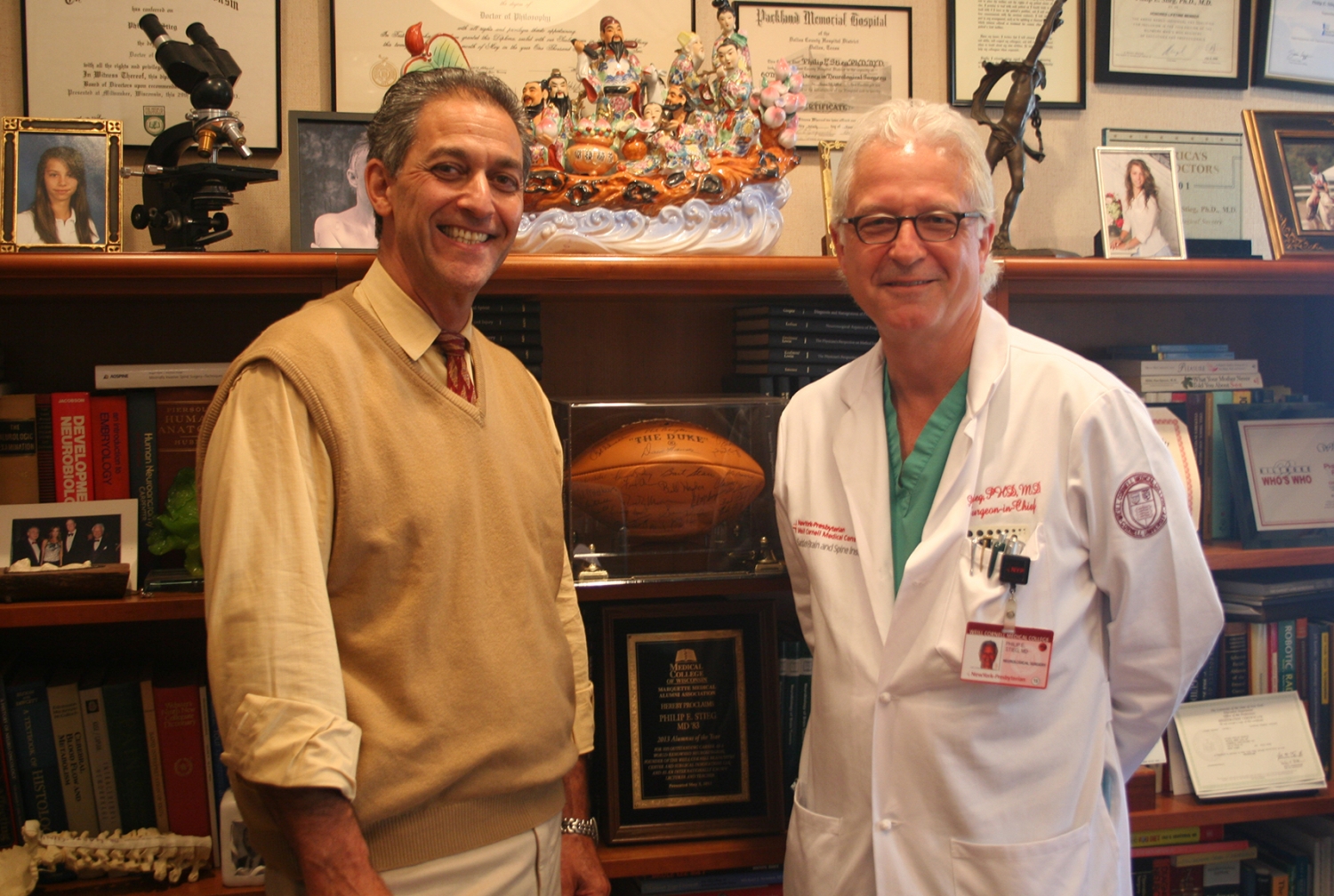After colliding with Argentinian soccer player Ezequiel Garay during the final World Cup game, Christoph Kramer's head violently whipped to the side as he collapsed to the ground. The German player's fall was one of several head injuries during the 2014 FIFA World Cup games, reinvigorating the debate over concussions and hasty return-to-play decisions.
"Concussions are mild traumatic brain injuries and need to be taken seriously," said Dr. Philip E. Stieg, chairman and professor of neurological surgery at Weill Cornell Medical College. "They occur either when your head impacts an object or something impacts with your head. If you return to the field too soon after a concussion, especially if it is immediately after the injury occurs, you could be at risk of further, potentially more serious, injury."
In early June, Dr. Stieg led a continuing medical education course at the Weill Cornell Brain and Spine Center focused specifically on sports-related head trauma. At the course, "Sports-Related Head Trauma: Current Concepts in Assessment, Treatment and Prevention," Dr. Barry E. Kosofsky emphasized how the amount of damage caused in concussions is also related to rotational movement.
"The brain can be thought of as resembling a piece of broccoli, with the stalk (brain stem) at the base and the flower (cortex) on top," said Dr. Kosofsky, a pediatric neurologist and professor at Weill Cornell Medical College. "When someone experiences rotational torque resulting from a concussion, it is similar to stretching the part of the broccoli where the stalk meets the flower. The stalk is held in place but the brain is free to move, due to acceleration or de-acceleration. Concussions are not just due to direct hits, but also the stretching of these fibers due to torque."
While impact and torque cause the initial injury, the physical symptoms of a concussion occur from the resulting neurometabolic cascade in the brain. This cascade causes cellular damage that inhibits neurons' ability to communicate with each other. The result is often impaired cognitive function and the mental fog experienced by athletes after a head injury.
"Other common concussion symptoms include headaches, balance problems, dizziness, nausea, vomiting confusion and fatigue," said Dr. Kenneth C. Kutner, a clinical assistant professor of neuropsychology at Weill Cornell Medical College. "Some of these symptoms might not become prominent until the individual returns to school or work, when they are mentally challenged."
Dr. James J. Kinderknecht, who presented along with Dr. Kosofsky at the course, remarked that whether or not patients experience symptoms like headache, nausea or vomiting is a fairly reliable way of diagnosing a concussion. However, athletes' desire to get back in the game can become a complicating factor, as they may not be forthcoming about symptoms. World Cup fans witnessed this firsthand during the final game, when Christoph Kramer continued to play for an additional 14 minutes after his violent collision. (FIFA has not made a ruling on the nature of Kramer's injury.)
"Both professional athletes and kids have an overwhelming desire to play and they know that if they answer truthfully, then they won't be able to," Kinderknecht said. "Up to 50 percent admit to bending the truth about their symptoms to get back in the game more quickly. That's why it is mandatory to make people understand that it's not a sore toe...It's your brain and it cannot be 'kind of sore.' You can cause serious damage by not being honest about your symptoms and getting back on the field too quickly."
President Obama echoed similar sentiments during the White House's "Healthy Kids and Safe Sports Concussion Summit" in late May, which has recently brought the issue of concussions into wider public discussion. However, some in the medical community feel the pendulum may have swung too far, into the realm of hyper-awareness.
"Now everyone who has a child who bumps their head wants to be immediately evaluated, when in reality most would have gotten better on their own," Dr. Kosofsky said. "For most people, having a concussion would not be a medical emergency ... but it is important to educate the public so that at the time of the injury, the ones that require it get the emergency attention that they need."
Currently, there are no body scans or blood tests that can accurately diagnose a concussion. Instead, doctors must rely upon symptomatic diagnosis and neuropsychological testing. However, researchers at Weill Cornell are developing new and increasingly accurate diagnostic tools. Dr. Kutner is a principle investigator of a new study investigating MRI scans of concussed NFL football players and their brain's white matter fibers.
"The study uses diffusion tensor imaging (DTI), which is not a new technology but a new way to analyze MRI data," explained Dr. Kutner. "The study uses a regular MRI scan to look at the white matter information it shows in the brain, and then run that data through a new formula. Researchers are also starting to look at blood markers for concussion and are looking to see if changes in brain-related proteins can be measured in the blood."

